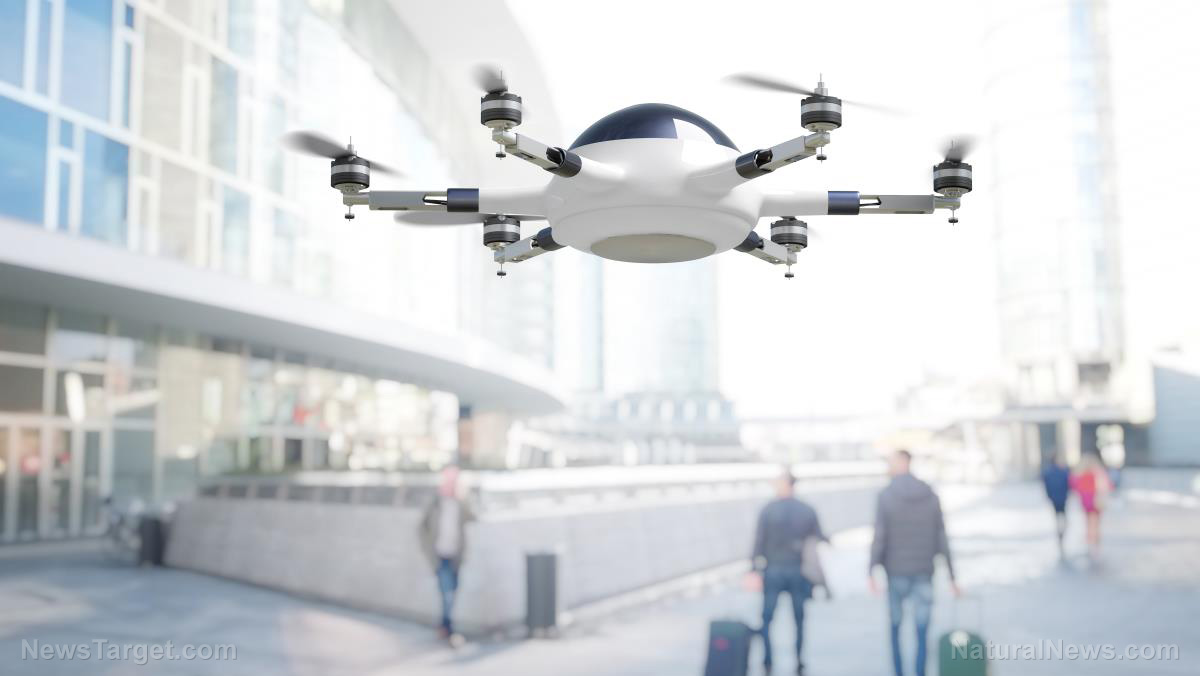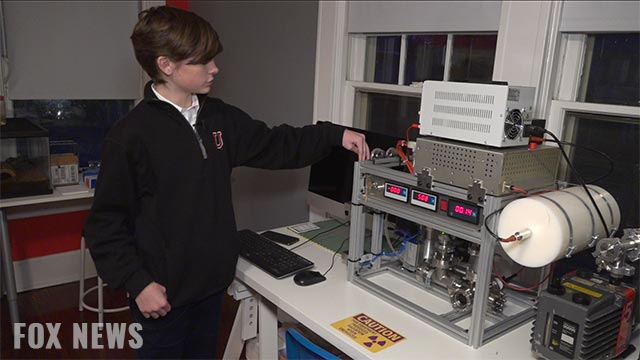Self-driving tanks and attack drones: Russia claims they have a new killer robot army
08/26/2019 / By Edsel Cook

In the newest piece from Russia, an ominous swarm of killer machines buzzes through the air and rumble over the land to the tune of rock music. In the video, the quadcopter drones and robotic tank aim their weapons at the target designated by the human scouts they accompany.
The video came from the Advanced Research Foundation (ARF), the Russian counterpart to the U.S. Defense Advanced Research Projects Agency (DARPA). It shows off the newest and future additions to the ever-growing arsenal that Russia offers to its allies and brandishes at its rivals.
The “star” of the show is Marker, an unmanned ground combat vehicle that tests robotics technology. ARF claims that production versions of the battle robot may serve alongside Russian Special Forces.
Marker’s lineage dates back to 2015. In that year, the ARF opened a national center that developed robotics-related technologies and potential uses for robots on the battlefield.
As part of the ongoing experimentation, Marker will try out different payloads of weapons, armor, and electronics. If a load-out worked well, it might get fitted onto a new generation of armed robots. (Related: Bangkok to deploy drones to combat air pollution.)
In Russia, armed robots shoot you
Like many military machines these days, the Marker robot is a modular design. Mechanics will repair and replace damaged parts quickly. They will also be able to switch out its equipment according to the requirements of the mission.
Its artificial intelligence runs on what is called open information architecture. It can share data freely with humans and other drones that have access to its communications network.
The ARF video shows the Marker carrying a Kalashnikov model machine gun for mowing down infantry and grenade launchers with the firepower to take out a conventional tank. Experts believe it may experiment with alternate weapons like auto-cannons and anti-aircraft missiles.
Notably, the robot’s heavily armed turret tracks the same target that a Russian soldier points his rifle at. ARF claims that Marker can take targeting cues from a human partner who controls it. The armed robot may also be operated remotely from another location.
In most robotic targeting systems, the AI system looks for targets and tells the human operator, who checks the sensor feed before deciding whether or not to fire. The Russians flip the situation by turning the human into the spotter and having the robot shoot the target.
Swarms of quadcopter drones will locate targets for armed robots
“This sentiment and development path is in line with recent Russian statement that the country’s military is developing AI-powered weapons with the ability to identify and engage targets,” commented Center for Naval Analyses researcher Samuel Bendett.
In addition to the Marker armed robot, the ARF video features lots of quadcopter drones. The starting squad of five drones are joined by two more squads that bring them up to a 15-strong unit.
Based on the video, the swarm of quadcopter drones appears to be working alongside Marker. They might be providing targeting data for the bigger robot, which also happens to have all the guns.
ARF previously demonstrated the ability to operate smaller groups of drones. Furthermore, the Russian military has deployed robots to Syria and engaged rebel-controlled drones. The combination of Marker and the quadcopter swarm may reflect battlefield experience.
“We should be objective when trying to discern robotics capabilities form PR videos like that one, no matter how realistic it may look,” commented Bendett. “Still – many Russian statements from the unmanned systems developers pointed to Russia pursuing a swarm strategy for its UAVs and even UGVs – looks like they are finally delivering on that promise.”
Sources include:
Tagged Under: armed robots, artificial intelligence, badtech, battle drones, drone weapons, killer robots, Marker, military tech, military technology, military weapons, quadcopter drone, robotics, Russia, Russian weapons, weapons tech
RECENT NEWS & ARTICLES
COPYRIGHT © 2017 FUTURETECH.NEWS
All content posted on this site is protected under Free Speech. FutureTech.news is not responsible for content written by contributing authors. The information on this site is provided for educational and entertainment purposes only. It is not intended as a substitute for professional advice of any kind. FutureTech.news assumes no responsibility for the use or misuse of this material. All trademarks, registered trademarks and service marks mentioned on this site are the property of their respective owners.


















